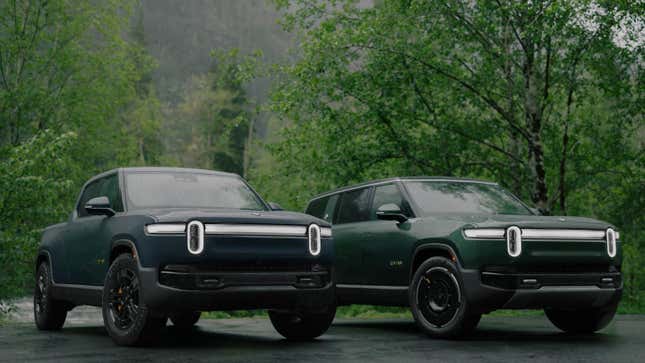
The average price of a new car in the United States is over $48,000, which is over half of the median income of all households in the country, so you’d think the importance of owning a reliable car that minimizes unexpected expenses would be a top priority, right? According to Consumer Reports’ latest member survey of the average predicted reliability of different car brands, that logic doesn’t always play a big role in the real world. There were some surprises in the reliability survey, but what really raises un-Botoxed eyebrows is how Rivian ranked across two studies that you think would be closely aligned: average predicted reliability and owner satisfaction. While Rivian somehow managed to place dead last in reliability rankings by a huge margin, it simultaneously topped the owner satisfaction survey by over 10 percent.
First it’s important to look at methodology. Each year, Consumer Reports surveys its members and asks them to report on products they’ve consumed. Predicted reliability rankings are reached when CR looks at its members’ ownership experience over the past 12 months, as it relates to 20 common trouble areas, then weighs the severity of each problem to create a predicted reliability score between 1 and 100. Owner satisfaction scores are earned in a similar manner; CR surveys its members and asks them if they would buy the same vehicle again. The owner satisfaction ranking reflects the percentage of owners who responded “definitely yes” when asked whether they would buy the same vehicle if they had to do it all over again considering everything over their past year of ownership.
So, how can it be that Rivian, a brand that scored a dismal 14 out of 100 in reliability (the next-worst brand Cadillac scored 27 out of 100), simultaneously earned an 86-percent owner satisfaction rating? There is no objective answer, but we can certainly blindly pontificate. Rivian only makes two models, and the most affordable Rivian currently costs about $70,000, so it’s possible that folks who can afford these expensive cars are less likely to be bothered by poor reliability.
Or, it could be that Rivian owners have an emotional connection to their vehicle that outweighs its problems, like how people can overlook a person’s red flags if they are really hot. Hell, Jeep has sold tons of Wranglers despite their poor reliability reputation. Sometimes it’s just all about the vibe. There is no definitive answer to how Rivian managed this dichotomy, but what is certain is that Rivian owners are passionate about their rugged, distinctive, fast, and unreliable electric trucks.

